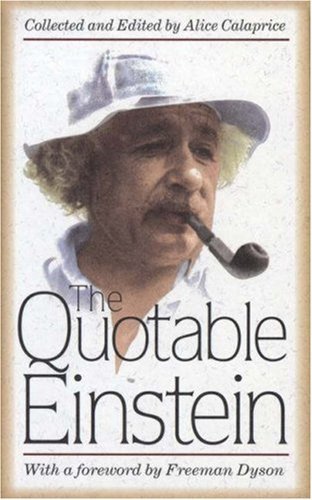
Ideas and Opinions
Book Description
A mind that reshaped the universe shares its most intimate thoughts. In "Ideas and Opinions," Albert Einstein transcends science, boldly confronting the pressing issues of his time—war, politics, and humanity's fate. His fierce intellect shines through essays that challenge the status quo, igniting passion and sparking revolution. With profound insights and startling truths, he invites readers to question the very fabric of their beliefs. As the world teeters on the brink of chaos, what daring visions will emerge from the genius of one man? Discover the power of ideas—can they change the course of history?
Quick Book Summary
"Ideas and Opinions" is a wide-ranging collection of essays, speeches, and letters by Albert Einstein, offering a rare glimpse into the thoughts of one of the 20th century's greatest minds. The book traverses Einstein's reflections on science, philosophy, politics, religion, and the very nature of humanity. Beyond his groundbreaking scientific contributions, Einstein emerges as a humanitarian and social critic deeply concerned about the ethical implications of technological progress, the perils of war, and the future of global society. His eloquent arguments advocate for peace, civil liberties, and education, while championing independent inquiry and intellectual integrity. The collection is not only a testament to his scientific genius, but also to his conviction that ideas can—and must—shape a better world.
Summary of Key Ideas
Table of Contents
The Relationship Between Science and Society
Einstein's essays underline the crucial interplay between scientific inquiry and societal welfare. He investigates the responsibilities scientists bear, asserting that science should advance humanity rather than merely accumulate knowledge or enable destructive technology. Einstein warns against the misuse of scientific advancements, particularly in the context of weapons, advocating that such progress be directed toward solving global challenges. He emphasizes that science thrives best in environments that encourage freedom of thought and protect intellectual curiosity from external constraints.
The Dangers of Nationalism and War
A major theme is Einstein's critique of nationalism and the destructiveness of war. Having witnessed two world wars and the rise of fascist regimes, Einstein argues that nationalism breeds conflict and suspicion. He champions international cooperation and the establishment of supranational institutions capable of arbitrating disputes and maintaining peace. For Einstein, loyalty to humanity must transcend narrow allegiances to nation-states, and only a shared sense of global responsibility can prevent future calamities.
Religion, Ethics, and Human Values
Einstein's thoughts on religion and philosophy bridge the gap between scientific rationality and spiritual inquiry. He expresses skepticism toward dogmatic religious beliefs, yet acknowledges the profound sense of wonder and awe that underpins both science and spirituality. He advocates for an "ethical religion," where moral values arise not from divine authority but from empathy, reason, and a deep-seated reverence for life. This synthesis, he proposes, can guide individuals toward more compassionate and ethical action.
Education and the Role of Independent Thought
Education, for Einstein, is both a personal and societal imperative. He criticizes rote learning and authoritarian educational models that stifle creativity. True education, he insists, should inspire critical thinking, nurture curiosity, and encourage individuals to question established ideas. By fostering independent thought, education equips people not only for intellectual achievement but also for principled citizenship and meaningful participation in democratic society.
The Pursuit of Peace and Global Cooperation
At the heart of "Ideas and Opinions" is a steadfast commitment to peace and the belief that dialogue and cooperation are essential for human progress. Einstein discusses the importance of civil liberties, the challenges facing democracy, and the urgent need for global disarmament. He argues that the survival and advancement of humanity depend upon transcending divisions of race, class, and nationality. Throughout, his words challenge readers to reflect on their own roles in building a more just and harmonious world.
Download This Summary
Get a free PDF of this summary instantly — no email required.





